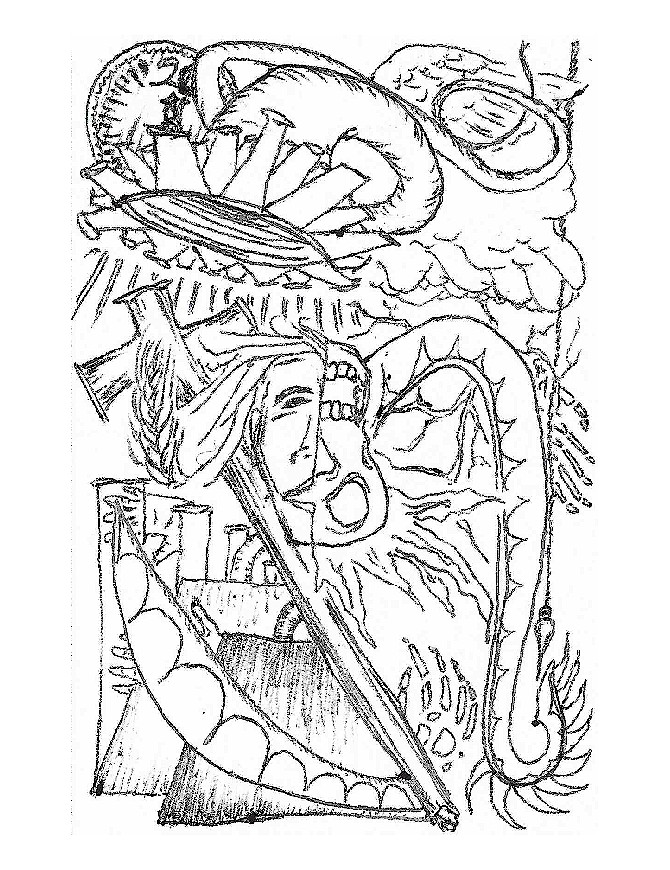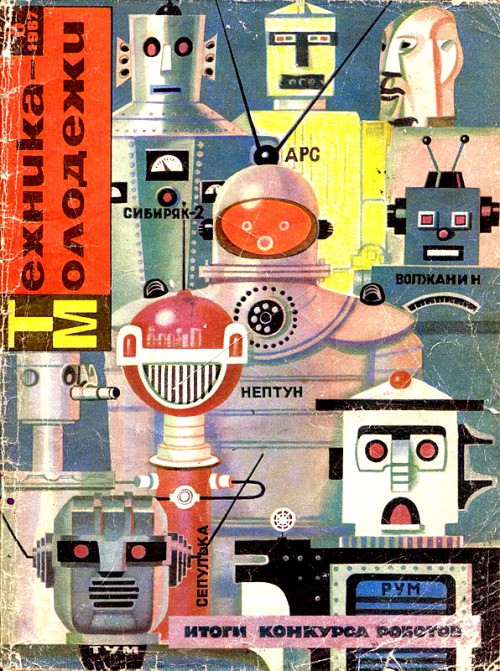Watch
Events
Articles
Market
More
From an OOM project.
Talk to me about people who make intriguing Strange things!
Every working day I create an OOM for the Strange things of our Maker.
ofourmaker.com
#dailycreatedoom 2023/10/01




This is late - we are out at Sukkot and I am not using my normal computer.
https://thestraightandnarrow.cfw.me/comics/686
#bible #bibleverse #torahobservant #torahportion #shabbatshalom #christian #messianic #messianicjudiasm #hebrewroots #webcomic #webcomicseries #cartoon



This OOMlich robot picture.
https://thevaultofretroscifi.t....umblr.com/post/75592
Tell me about a Strange thing that intrigues you!
Every working day I post an OOM for the Strange things of our Maker.
ofourmaker.com
#dailyoom




{Edited from a conversation about "wine" in Scripture.}
A main part of the confusion here comes from translators to English, which, instead of using the foreign word for the foreign item (like is done today with "kvass", "ramen", and other foreign things), they used a word in English for something familiar to them: "wine". This was an error in judgement which has destroyed countless lives through the confusion they caused. The problem is that, especially today, the word "wine" all but exclusively refers to an alcoholic state of the drink. The drink referred to in Scripture, which is "yayin", is in truth fermented drinks in general.
Yayin wasn't even always grapes: "yayin of the juice of my pomegranate" Song of Solomon 8. And we know from history and from Scripture that it was certainly not always the alcoholic state of the fermentation. One would have to argue that it was normal biblically to give alcohol to little children: "the children and the sucklings swoon in the streets of the city. They say to their mothers, Where is grain and yayin?" Lam 2
The command is given: "Look not thou upon the yayin" when? "when it is red, when it giveth his colour in the cup, when it moveth itself aright" when it is seductive, alluring, alcoholic. Then you are not only to not drink it at all, but not to even look at it: do not let it tempt you. Why? "Thine eyes shall behold women strangers, and thine heart shall utter perverse things" Pr 23.
However little one drinks, one has decided to give up that much of their self-control. Some people sometimes still have enough control to stop drinking; many do not. Whether one does or does not have enough control left to stop, is it sinful to deliberately impair one's judgement, sinful to tempt one's self to sin.
"It is not for kings, O Lemuel, it is not for kings to drink yayin, nor for princes strong drink: lest they drink, and forget the law, and pervert the judgment of any of the afflicted" Pr 31.
Not, "you should not drink so much that you forget the law", but, "you should not drink at all, lest you forget the law". Every Christian must be ready to judge justly: "Know ye not that we shall judge angels? how much more things that pertain to this life?" 1Cor 6.
(The word "shekher", translated as "strong drink", refers to intoxication, and is often paired with "yayin" to clarify when it is speaking of intoxicating, alcoholic yayin.)
"Give strong drink unto him that has no hope", this is why God's law sanctions it for unbelievers, but for a believer to drink alcohol is to cast aside faith in God: "that ye sorrow not, as others which have no hope" 1Thes 4. Do we not have hope? Are we not Christians? "whatsoever is not of faith is sin" Ro 14.
If we obey the command of God and act like Christians, then we may say like righteous Hannah: "I have drunk neither yayin nor strong drink ... Count not thine handmaid for a daughter of Belial" 1Sa 1.
#sabbathposts 2023/09/30


